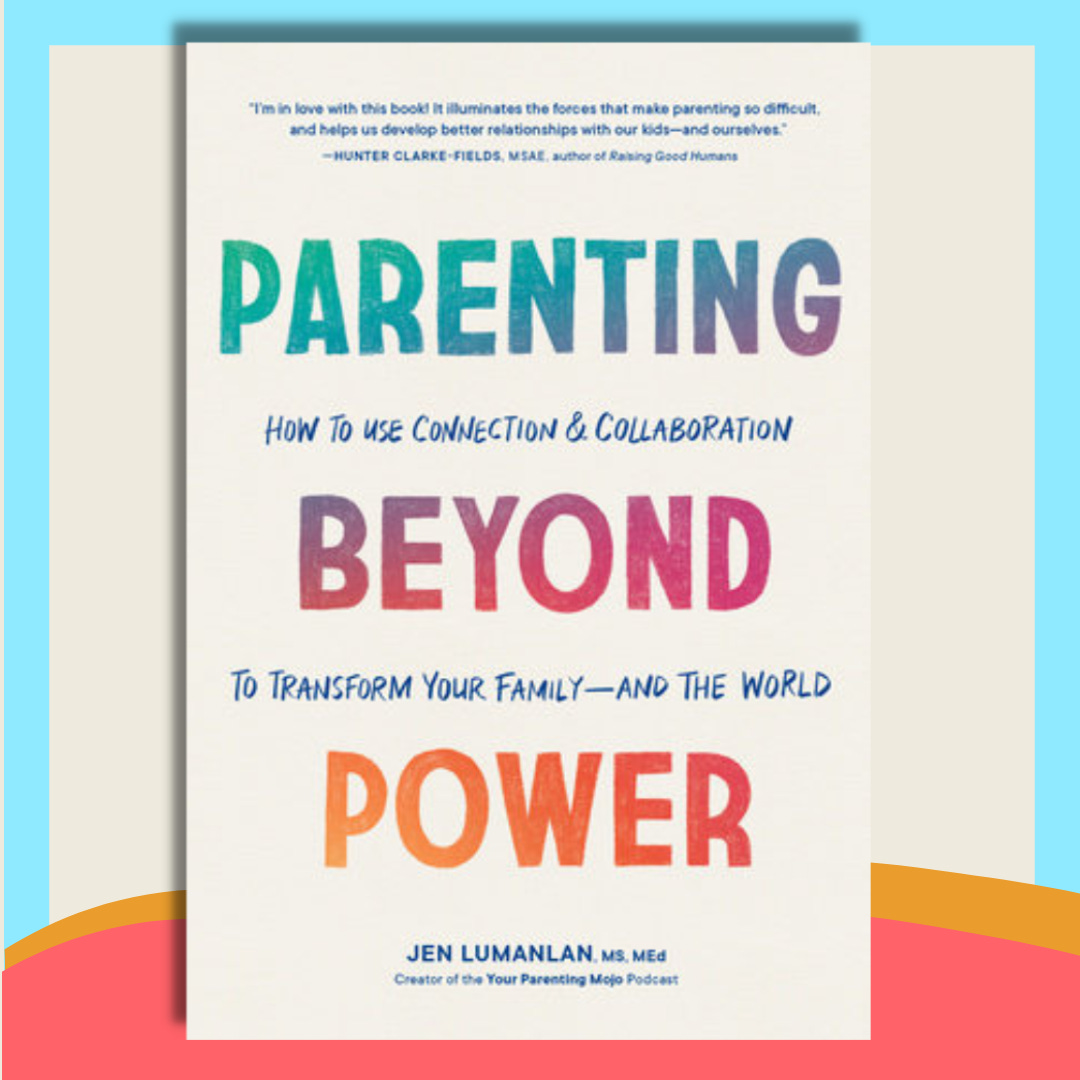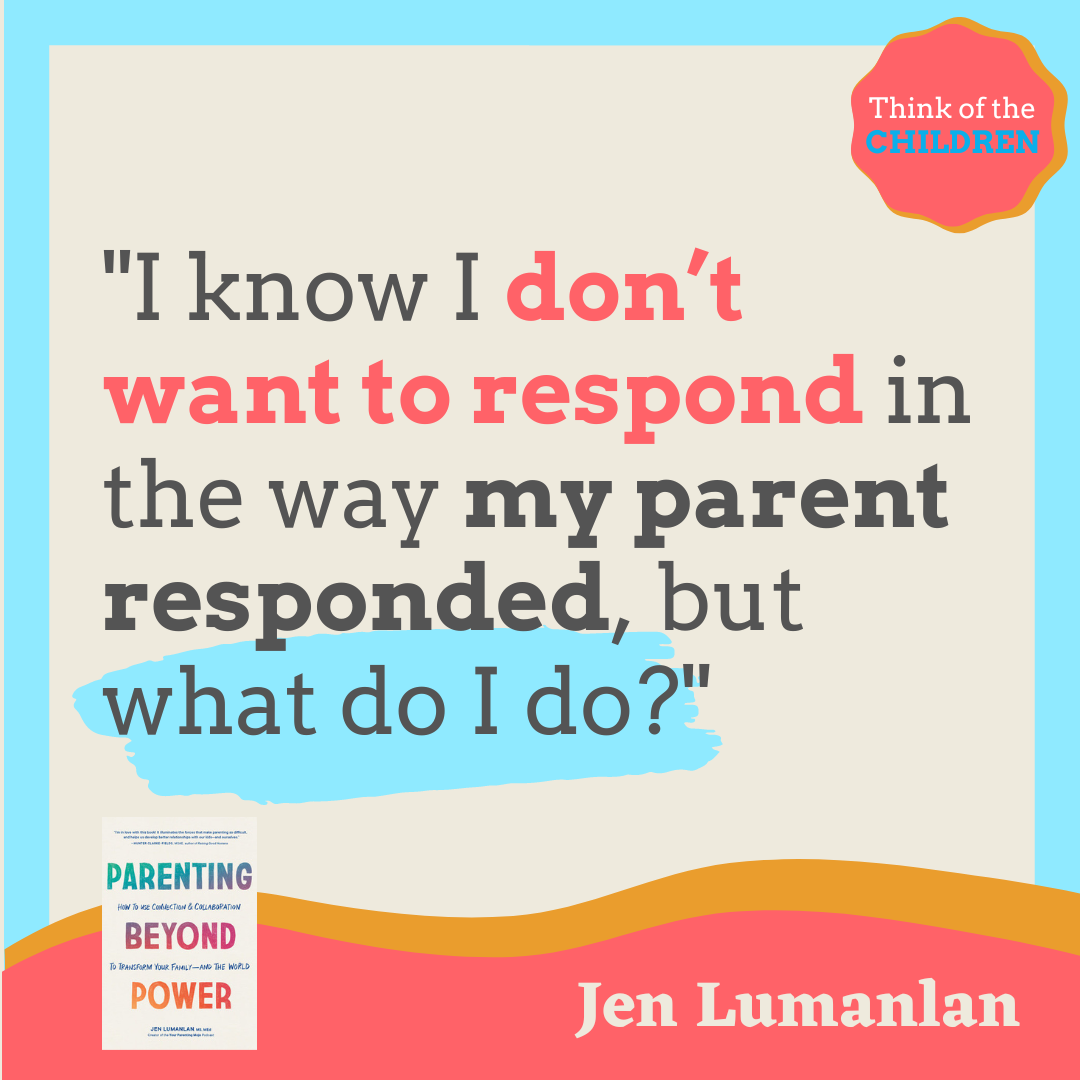'I realized I didn't have to say no to this'
Jen Lumanlan's 'Parenting Beyond Power' helps parents and kids navigate their needs in a way that sidesteps unnecessary power struggles.
Jen Lumanlan hosts the Your Parenting Mojo podcast. Her book, “Parenting Beyond Power: How to Use Connection and Collaboration to Transform Your Family — and the World,” is out in September 2023. Subscribers can listen to my interview with Jen — including bonus material delving into some of my personal parenting challenges — here.
Tell me a little bit about your podcast.
The Your Parenting Mojo podcast started as research-based information to help kids thrive, because I realized I had no parenting instinct whatever and not amazing role models, but I had really good research skills, and could use those to plug the other gaps that are there. It has evolved; it looks beyond the research to consider the ways that researchers are very much steeped in the same cultural stuff that we all are. So when it is trying to help us to be successful, it’s to be successful in a culture that frankly is hurting a lot of us right now. So if we want to create a culture that maybe the research isn’t based in.
Tell me about “Parenting Beyond Power” - what prompted you to write this book? What do you hope your readers will take away from it?
I was starting to see the connections between some really big social challenges we have out in the world, like white supremacy and patriarchy and capitalism, that parents might look at and think, What can I, one person, do about these things? And on the other hand, they’re struggling with their children’s behavior. Their children are resisting everything we’re asking them to do, and looking us right in the eye and doing something different.
We look at these things and wonder, how would these things be related? But over time exploring it, I realized these things are intimately connected, and the way we interact with our children shapes how they will go out into the world. The beginning of the book sets up that framework: This is why we’re finding parenting hard. Because our parents saw our needs and said, You’re not going to be accepted in the world, you had better learn to suppress your needs. And we struggle in many ways because of that. Then the book goes into, OK, I’m on board with that, what do I actually do differently? How can I work with my child so that things are easier? So that I can feel like I’m on the same team and my child’s needs are also met as well.
I work with so many parents who say, ‘Before I met you, I didn’t know that I had needs, let alone what those needs were.’
You describe an approach to parenting that sounds wonderful for both children and adults. Why do you think more parents aren't already parenting this way?
The biggest thing is, this is not how we were raised. I work with so many parents who say, Before I met you, I didn’t know that I had needs, let alone what those needs were. Our parents really wanted the best for us. And yet they constrained us. They told us it’s not OK for you to have or express needs or boundaries. So when we get in these situations where our child says, No, I’m not doing that, or they’re jumping on the couch, particularly for parents who are kind of on board with the idea of respectful parenting, there’s this tug of war happening inside that says, I know I don’t want to respond in the way my parent responded, but what do I do?
Can you name something that's challenging about parenting for you right now?
The thing is, once you use this framework, the things that seem really challenging suddenly are not difficult. For example, my daughter was having really big feelings trying to get out the door today because she was dysregulated. We’re on a bit of a different schedule and she was finding it difficult. But I was with her in that, and seeing that she was struggling, and that got us through it in a connecting way.
It’s not that difficult things never happen; it’s that when they do happen, most of the time, I’m able to see what our needs are. Maybe her need is for connection, and my need is for competence. So I can ask myself, Do I have a bit of time later? Can I take the time to be with her now?
Tell me something wonderful about your child/ren:
Last night my daughter hadn’t eaten much, and she said, Can I dip my blueberries in jam? And my first response was, I don’t know about that. She said, Well, I haven’t had my candies of the day yet. We have an agreement that she can have three candies each day. She said, It seems like you’re feeling worried about that. Can we talk about that so we can find a way to make you feel comfortable about this?
When we do this repeatedly, they start to be the ones who say, I can see that something isn’t right about this. When I thought about it, my need was to make sure she ate a balanced meal, and could that be achieved by her having jam if she hadn’t had any candy? I realized, I didn’t have to say no to this.
It doesn’t take that long to start to see these types of changes. I’ve worked with people who are just tearing their hair out. They start doing this with their children, like 5 and 3, and within the couple of weeks, the 5-year-old is saying to the 3-year-old, “I’m wondering if you’re upset.” And when we’re all going out into the world, seeing other people’s needs as important as our own, and taking steps to meet those needs, is something that can really make a difference.
If you’re curious about the approach that Jen described, be sure to check out her book, or take the quiz at YourParentingMojo.com to find out how you can put these ideas into practice. You can also catch Jen on book tour this fall!





